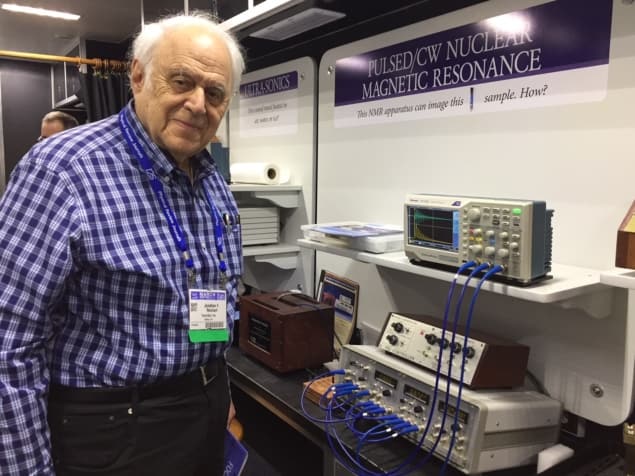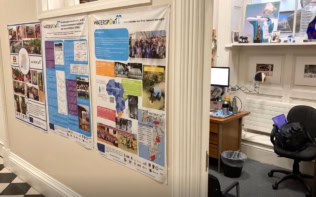
Without doubt the most unusual exhibit at this year’s APS March Meeting was the “Food Truck for the Physics Mind”, the brainchild of educational specialists TeachSpin. Founded in 1994 by Jonathan Reichert, a physics professor at the State University of New York, Buffalo, TeachSpin devises and builds sophisticated experiments to allow undergraduate students to explore key concepts in physics and to understand how different instruments can be used to probe a range of physical phenomena.
The 44-foot food truck allows the TeachSpin team to take 20 experiments out on the road, allowing students and faculty at colleges across the United States to get hands-on experience with research-grade instrumentation. The mobile teaching laboratory has already made stops at more than 30 institutions, with more planned in California immediately after the APS meeting.
Reichert told me that he originally set up the company to provide more undergraduates with access to advanced laboratory experiments that can be used both to teach core physics principles and to allow students to produce meaningful data for experimental projects. “Of 750 institutions offering undergraduate degrees in physics, less than half provide advanced laboratories to their students,” he said. “But the advanced lab is a critical educational experience for a physics major.”
A quick tour of the food truck reveals advanced experiments in areas such as diode laser spectroscopy and optical pumping of rubidium vapour, Fourier techniques, two-slit interference one photon at a time, and a suite of experiments for condensed matter physics. But Reichert himself is most closely associated with an instrument designed for teaching pulsed nuclear magnetic resonance (NMR), which includes a spectrometer capable of one-dimensional imaging.
Hundreds of TeachSpin’s experiments are now installed in teaching laboratories all over the world, including the University of Cambridge in the UK – where Reichart says the pulsed NMR experiment has proved particularly popular. The company is run as a foundation, with all the profits used to support the education of undergraduates students through advanced physics laboratories.
“Your students deserve to have this experience,” Reichert enthuses. “Little compares to the excitement of using modern apparatus, and they mind find the laboratory the highlight of their undergraduate education.”



